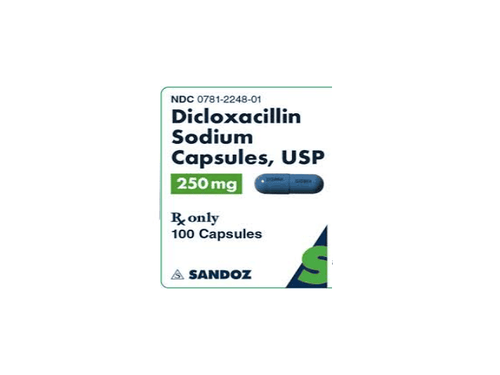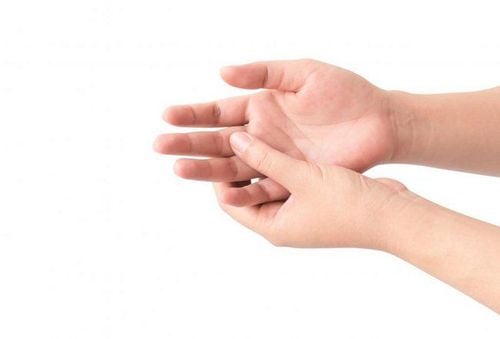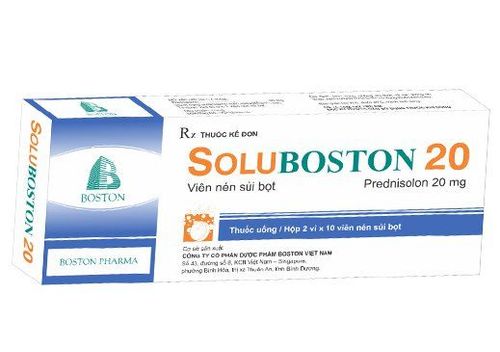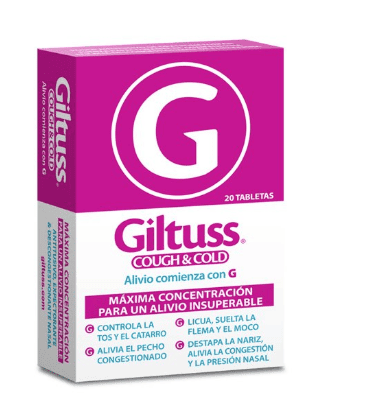This is an automatically translated article.
Bedexlor drug has 2 main ingredients, Betamethasone and Dexchlorpheniramine maleate, which is prepared in the form of tablets. Bedexlor is used in the treatment of allergies, severe bronchial asthma, allergic rhinitis, ....
1. What are the uses of Bedexlor?
Bedexlor is known to be an antiallergic and is used in cases of hypersensitivity. Use of Bedexlor drug is promoted effectively when treating cases such as:
Rheumatic diseases: Rheumatoid arthritis, acute and subacute bursitis, condylar process,...; Collagen disease: systemic lupus erythematosus, scleroderma, polymyositis; Allergic states: Asthma attacks, chronic bronchial asthma, severe allergic bronchitis, seasonal or year-round allergic rhinitis, atopic dermatitis,...; Skin disease: Localized infiltrative lesions, hypertrophy of flat lichen, psoriatic rash, keloids, discoid lupus erythematosus, Stevens - Johnson syndrome,...; Endocrine diseases: primary and secondary adrenal insufficiency (need to be used in combination with Mineralocorticoids), congenital adrenal hyperplasia,...; Eye diseases: Inflammatory and allergic processes in the eye and adnexa such as allergic conjunctivitis, cornea, posterior choroidal and diffuse choroidal, optic nerve; Respiratory disease: Symptomatic sarcoid disease, pneumothorax and pulmonary fibrosis; Blood diseases: Idiopathic or secondary thrombocytopenia in adults, transfusion reactions, acquired hemolytic anemia (autoimmune); Gastrointestinal diseases: Chronic autoimmune hepatitis and colon disease, progressive Crohn's disease or bleeding ulcerative colitis; Cancer: Temporary treatment of leukemia and lymphoma in adults or acute leukemia in children; Nephrotic syndrome: Helps to reduce proteinuria and edema in nephrotic syndrome due to non-primary uremia or lupus erythematosus. Contraindicated to use Bedexlor for the following subjects:
Patients with diabetes, ulcers of the stomach and duodenum, mental illness, in bacterial and viral infections, in systemic fungal infections; Hypersensitivity to betamethasone or to other corticosteroids or to any of the ingredients in the preparation; Acute asthma; People taking monoamine oxidase (MAO) inhibitors; Children under 6 years old, infants and premature babies; Women in the last 3 months of pregnancy and nursing mothers; Prostate enlargement or bladder neck obstruction; Narrow angle glaucoma.
2. Instructions on how to use Bedexlor
Bedexlor is used orally. Patients take Bedexlor tablets with 1 amount of water, in the morning or at night before going to bed.
Dosage of Bedexlor drug must be prescribed by a doctor to suit each age and medical condition. Refer to the dose as follows:
Children from 6 to 12 years old: Take 1 tablet / time x 2 times / day. Children > 12 years old and adults: Take 1 tablet x 3-4 times/day. The lowest effective dose should be used and may be reduced to 1 tablet every 2 days. For acute urticaria, do not use more than 10 days.
3. Bedexlor side effects
Adverse effects (ADRs) of the drug Bedexlor according to many studies:
Related to betamethasone: Loss of potassium, sodium or water retention, menstrual irregularities, manifestation of latent diabetes, development of Cushing's syndrome , decreased glucose tolerance, increased need for insulin or hypoglycemic agents in patients with diabetes, osteoporosis, skin and subcutaneous atrophy, cataracts;... Related to dexlorpheniramine: Somnolence, dry mouth, sedation, dizziness and nausea.
4. Notes when using Bedexlor
Pay special attention to using Bedexlor for the following cases:
Patients drive and operate machinery. Because Bedexlor may cause drowsiness affecting the ability to drive and use machines. Pregnancy: There have been reports of weight loss in neonates whose mothers have received prolonged corticosteroid use due to adrenocortical suppression. If the drug is used in the last 3 months of pregnancy, there is a possibility of serious reactions in young children such as seizures. Therefore, it is contraindicated not to use the drug in the last 3 months of pregnancy. In the first 6 months of pregnancy, use Bedexlor only when absolutely necessary and prescribed by your doctor. Nursing mothers: Bedexlor will distribute into breast milk and cause unwanted effects such as growth inhibition, adrenal insufficiency. Do not use Bedexlor while breastfeeding. The lowest effective dose should be used and the abrupt discontinuation of Bedexlor should be avoided because of the risk of acute adrenal insufficiency. Bedexlor should be used with caution in patients with: Hypothyroidism; patients at high risk of osteoporosis or with osteoporosis, chronic lung disease or shortness of breath; myasthenia gravis;.. It is easy to increase the risk of infection, chickenpox and Herpes zoster infection when using Bedexlor in high doses due to immunosuppression. Reduce or inactivate vaccines if high doses of Bedexlor are used. During long-term treatment, it is necessary to balance electrolytes, reduce sodium and add calcium and potassium to the body. During treatment, limit alcohol consumption and use of stimulants such as coffee, tobacco, etc. due to increased side effects on the nervous system. May cause tooth decay with long-term treatment.
5. Bedexlor drug interactions
According to studies of each single active ingredient of Bedexlor, the following drug interactions may occur:
Betamethasone:
Paracetamol: Increased hepatotoxicity. Tricyclic antidepressants: Increased side effects of psychosis. Oral antidiabetic drugs or insulin: There is a risk of increased blood glucose, so the dose of antidiabetic agents must be increased to have the desired effect. Glycoside digitalis: There is a risk of arrhythmia and cardiotoxicity in addition to hypotension. Phenobarbital, Phenytoin, Rifampicin, Ephedrin: Increases metabolism and reduces the effect of Bedexlor. Estrogen: Reduces the elimination capacity and increases the concentration of betamethasone in the serum, thus increasing the effect and toxicity of the drug. Coumarin-type anticoagulants: Potential to increase or decrease anticoagulation. Non-steroidal anti-inflammatory drugs and alcohol: Increased risk of peptic ulcers. Use caution when using Bedexlor in combination with Aspirin. May increase the effect of cholinesterase inhibitors, Amphotericin B, Cyclosporin, loop diuretics, thiazides,... Dexclorpheniramine:
MAO inhibitors: Prolong and increase the effect of antimuscarin. Alcohol and sedatives: Increased side effects on the nervous system. CYP3A4 inhibitors such as dasatinib, pramlintide: Increased blood levels of dexlorpheniramine. Reduces the effect of cholinesterase inhibitors, betahistidine when used concurrently. To ensure the safety and optimal effectiveness of Bedexlor, tell your doctor about all medications and supplements you are taking.
Please dial HOTLINE for more information or register for an appointment HERE. Download MyVinmec app to make appointments faster and to manage your bookings easily.













